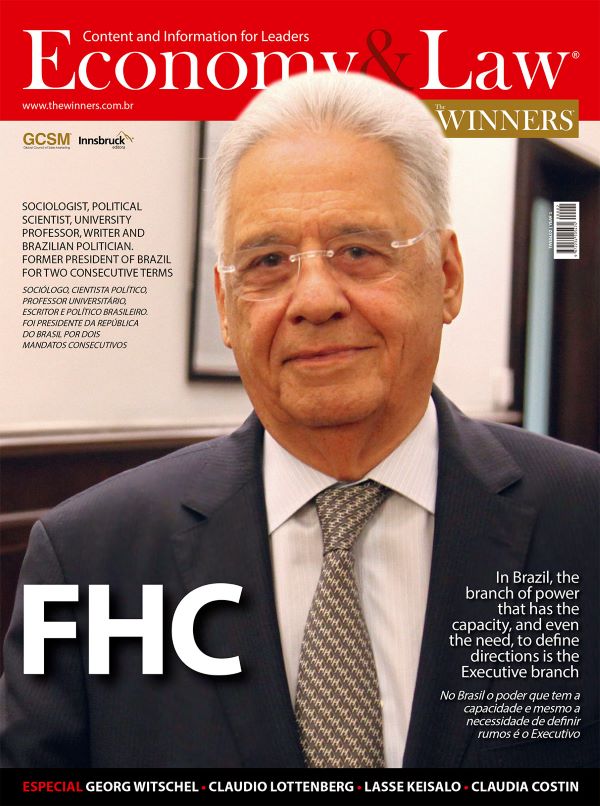Fernando Henrique Cardoso: Brazil, power and democracy
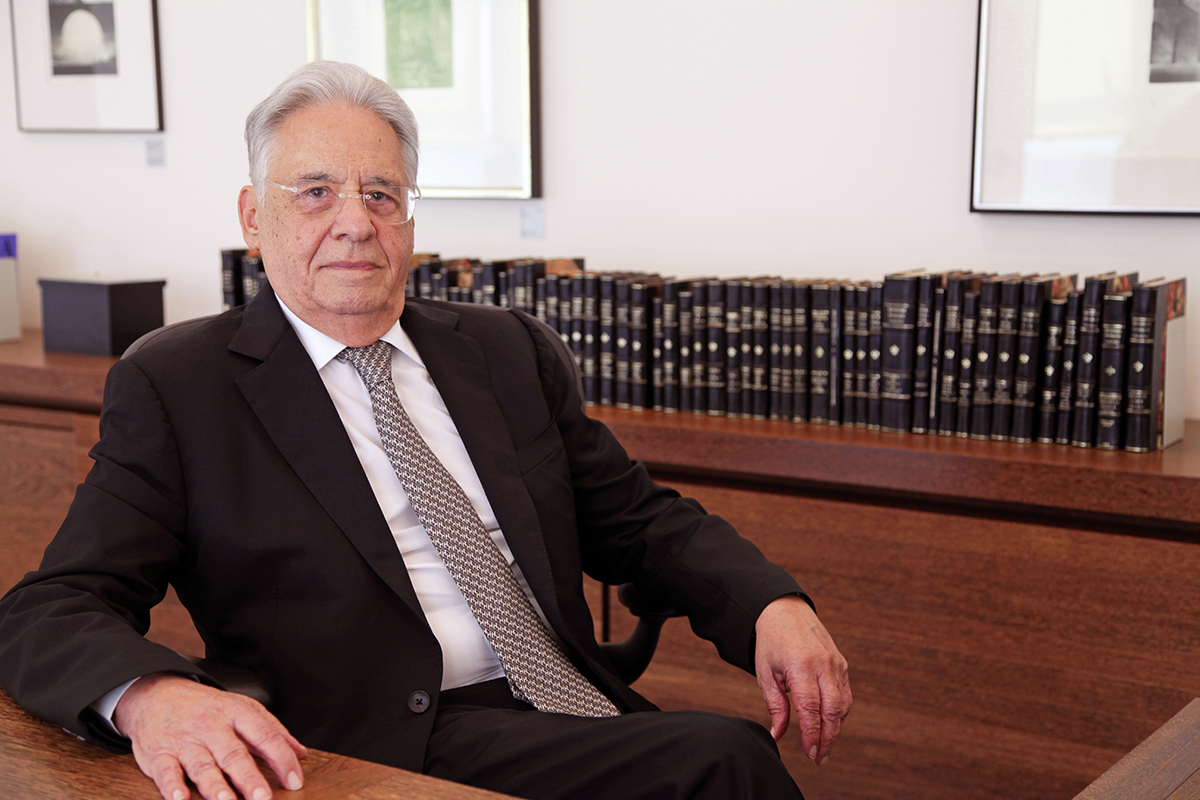

Former Brazilian’s President, kindly received TWEL Magazine for this exclusive interview. At a time when the country is going through a two-dimensional crisis, the global pandemic and a political controversy defying Brazilians’ lives, the sociologist keeps his lucidity and clarity of thought. Fernando Henrique Cardoso was president of the Federative Republic of Brazil for two consecutive terms, the first from January 1st, 1995 to January 1st, 1999, and the second from January 1st 1999 to January 1st, 2003.
He is a sociologist and the author of a number of books on social change and development in Brazil and Latin America. He was born in Rio de Janeiro on June 18th, 1931, to a military family. He was married to the anthropologist Ruth Corrêa Leite Cardoso and has three children. FHC graduated in Sociology from the University of São Paulo (USP), where he began to professor in 1953, obtained his doctorate and became a full professor.
Engaged in the struggle to improve public Laweducation and modernize the university, he was persecuted after the 1964 coup. He lived in exile in Chile and in France, where he engaged in research, wrote and lectured. FHC returned to Brazil in 1968, passing a civil service exam to teach Political Science at USP. The following year, Cardoso was forced to retire and had his political rights revoked under the country’s Institutional Act nº 5.
In order to remain in Brazil, in conjunction with other professors and researchers whose rights had also been suspended, he founded the Centro Brasileiro de Análise e Planejamento (Cebrap), which was to become an important center for research and reflection upon the Brazilian reality. In parallel, he was a professor at American (Princeton and the University of California at Berkeley) and European (Paris and Cambridge, UK) universities. In lectures and press articles, he gained recognition as a critic of the military regime and an advocate of a peaceful transition to democracy. Since 2003, he has accompanied Brazilian politics in his monthly column published in the newspapers O Globo and O Estado de S. Paulo.
The politician
In 1974, at the invitation of Ulysses Guimarães, president of the MDB, Cardoso coordinated the party’s electoral platform. In 1978, he ran for the Senate for the MDB, being elected as alternate to André Franco Montoro. With Montoro’s election as governor of the state of São Paulo in 1983, Cardoso replaced him in the Senate. Fernando Henrique Cardoso played an important role in the Diretas-já campaign and in articulating Tancredo Neves’ 1984 presidential campaign.
Indicated by Tancredo Neves, leader of the government in the National Congress, Fernando Henrique led the changes in electoral and political party legislation that paved the way for Brazil’s return to democracy. In 1985, Cardoso ran for mayor of São Paulo, losing by a margin of 30,000 votes to ex-president Jânio Quadros.
The next year, he was re-elected to the Senate with 6 million votes, the second highest vote in the state in a majority election. Leader of the PMDB in the Senate, Fernando Henrique Cardoso was one of the rapporteurs of the 1987/1988 Constituent. At the end of 1988, dissatisfied with the PMDB’s lack of definition regarding the Sarney government and contro-versial constitutional issues, he left the party to found the PSDB in conjunction with Mário Covas, Franco Montoro, José Serra and leaders from other political groups.
After the impeachment of president Fernando Collor de Mel-lo in October, 1992, Fernando Henrique Cardoso became Minister of Foreign Relations in the Ita-mar Franco government. In May 1993, responding to president’s request, he assumed the Ministry of Finance. Inflation was bordering on 30% per month and there was generalized concern about the deterioration of the political situation in the country.
Contrary to the opinion of elements who deemed it would only be possible to tackle inflation after the formation of the next government in 1995, Fernando Henrique managed to mobilize a parliamentary majori-ty and wide-scale public support for his stabilization plan, the Real Plan. This included drastic public debt control measures and monetary reform, which culminated in the launch of a new currency, the real, in July 1994.
Cardoso left the Ministry of Finance in March 1994 to run for the Presidency of the Republic as candidate for a coalition compri- sing the PSDB (Partido da Social Democracia Brasileira), PFL (Par-tido da Frente Liberal) and the PTB (Partido Trabalhista do Brasil). He was elected in the first round on October 3rd, 1994, with 54.3% of the votes, and took office on Janu-ary 1st, 1995.
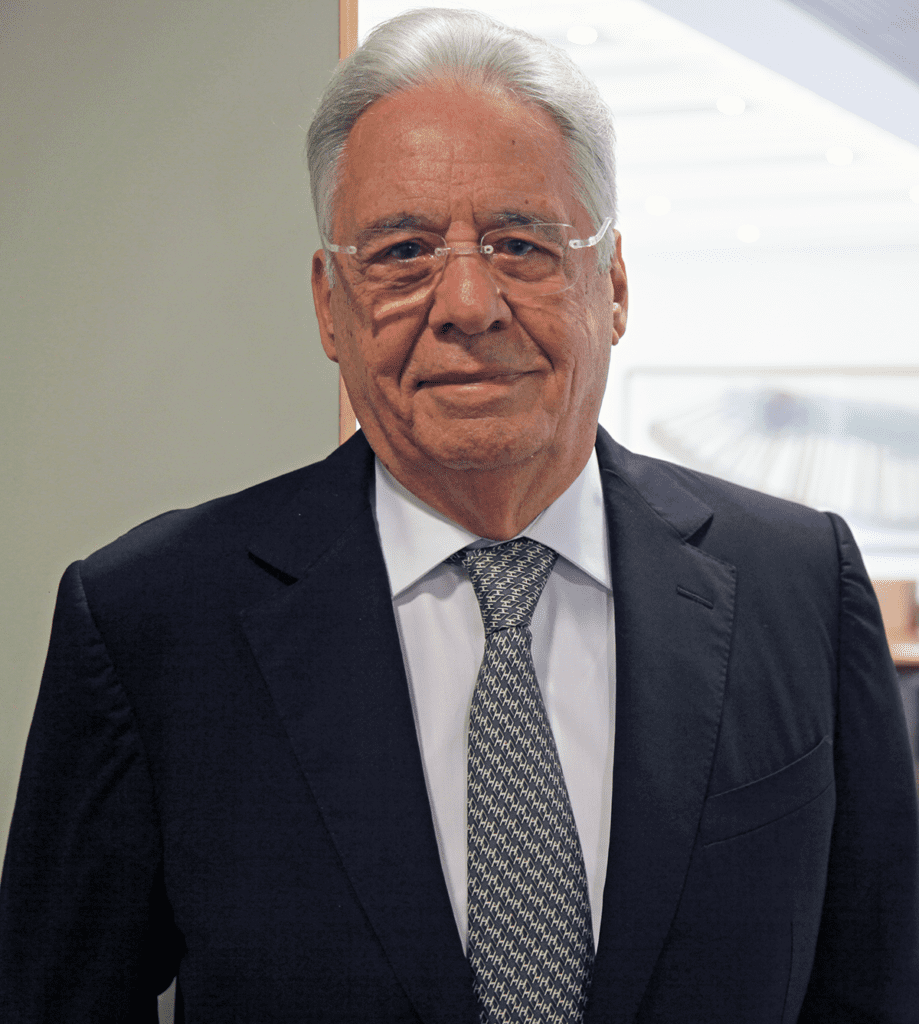
The president
On June 4, 1998, the Senate approved an amendment permitting reelection to executive office in the federal, state and municipal spheres of government. On October 4, 1998, FHC and the vice president Marco Maciel were reelected in the first round for a coalition consisting of the PSDB, PFL, PTB and PPB. FHC received 53.06% of the valid votes, compared with 31.71% for Luiz Inácio Lula da Silva of the PT (Partido dos Trabalhadores) and 10.97% for Ciro Gomes, of the PPS (Partido Popular Socialista). He took office on January 1, de 1999.
With the reelection, Fernan-do Henrique became the first ever president of Brazil to head the Executive for two consecutive terms. His presidency was marked by the consolidation of economic stability, reforms in the economy, social security and public administration, as well as by broader access to social policies. In 2002, with the victory of Luiz Inácio Lula da Silva in the presidential elections, president Fernando Henrique Cardoso facilitated the democratic transition process, cooperating with representatives of the incoming government.
Labeled as “neoliberal” and strongly contested during his government, Cardoso’s policies in the economic, social and institutional areas were in great part maintained by the opposition when it came into office in 2003. Under the impact of the success of the Real Plan, the FHC government’s greatest challenge was to maintain the stability of the currency and to simultaneously promote economic growth.
The government submitted a series of measures to alter the 1968 Federal Constitution for the approval of the National Congress in order to undertake a structural change in the Brazilian state in an attempt to enable it to adapt to the new global economy.
As a result, certain questions became part of the nation’s political life, such as administrative and social security reform, deregulation of markets, more flexible rules for hiring employees and the end of the state monopoly in the steel, electricity and telecommunications areas.
The reform of the Federal Administration and Social Security, deemed fundamental to reduce public spending, were debated at great length in Congress and suffered a number of modifications. The privatization program, a priority for the government, was subject to virulent criticism from the opposition, which questioned the valuation of the companies and, in some cases, for example the Companhia Vale do Rio Doce (CVRD), the strategic value of the industry.
In May 1997, the company came under the control of a consortium of Brazilian and foreign banks (the latter minority shareholders) and Brazilian pension funds. In spite of the criticisms, the program was implemented effectively: the distribution and regional generation areas of the electricity sector, were privatized completely; the telecommunications sector, including Telebrás and the state telephony companies, were transferred to the private sector in the second half of 1998; the Petrobras monopoly over the exploration and refinement of oil and the exploration of natural gas was brought to an end.
In 1994, with the launch of the real and the deindexation of the economy, the government had prohibited the automatic adjustment of salaries in line with inflation and established free bargaining between employers and employees. In November 1995, a provisional measure expanded the Lawpowers of the Brazilian Central Bank to intervene in banking institutions when necessary, with the objective of preventing the crisis which hit the sector – caused by the drop in the inflation rate and measures to contain consumption and the consequent decrease in the profits from financial speculation — from spreading and compromising the financial system. The Proer program (Programa de Fortalecimento do Sistema Financeiro Nacional) to strengthen the financial system was regulated.
Heavily engaged in the inter-national financial markets, during the FHC government Brazil faced an adverse international conjunc-ture, with successive external cri-ses, in particular in Mexico (Decem-ber 1994) and in Russia (1998), where the government actually de-clared a moratorium on its external debt, with significant outflows of capital from the country on these occasions.
In spite of the strong ties between the Brazilian economy and foreign capital, Brazil was better able to absorb and recover from these external crises than other countries. The stabilization of the economy, with the contention of the inflationary process, permitted an increase in average wages.
However, the mechanisms used to defend the Brazilian currency and the maintenance of high interest rates im-posed slow economic growth and, consequent-ly, an increase in unem-ployment, which rose from 5.6% in 1997 to 7.6% in 1998 (Fundação IBGE), reaching 10.7% at the end of the second term. This was attributed to the distrust of the mar-kets, the increase in the so-called “Brazil risk” and the upsurge in the dollar driven by concern about the victory of the PT candidate.
Regarding agricultural policy, despite the increase in transmission of unproductive proper- ties, the approval of laws enabling their immediate dis-appropriation and the increase in the number of families settled, the number of protests and farm occu-pations organized by the MST (Movimento dos Trabalhadores Sem Terra) rose.
The second term began with a rupture in the exchange policy hitherto in place: in January the real was devalued and the Central Bank permitted the dollar to float freely, which helped increase exports and reduce the interest rate.
The implementation of the agreement with the International Monetary Fund (IMF), signed the previous year, had resulted in the imposition of rigid targets, including an elevated fiscal surplus. At this point, worthy of note was the approval by the National Congress in May 2000 of the Fiscal Responsibility Law (Lei de Responsabilidade Fiscal) obliging the states and municipalities to plan, execute and prepare budget reports. The need to increase exports was met by the 19% growth in agro-industrial production between 2000 and 2003.
However, the power crisis between June 2001 and March 2002 led to the rationing of electricity for all sectors of society. In mid-August 2002, in the midst of the electoral process, lack of confidence on the part of the market and the sharp rise in the dollar led the government to sign another agreement for a loan of 30 billion dollars. At the end of 2002, inflation had reached double digits and unemployment stood at 9.4%.
Although limited by strong opposition in the National Congress, the reforms cleared the way for the modernization of the country’s economic infrastructure, enabling private investment in the telecommunications, electricity, oil, transportation and mining sectors. The expansion of the social security deficit was partially contained.
The constitutional bases were created for more flexible regimes in hiring and managing personnel in the public sector, including performance appraisal processes. A start was made on correcting the historically regressive bias of social policies in Brazil, which traditionally favored the middle and higher layers in detriment of the needier majorities of the population.
Access to fundamental education (Child Labor Eradication program (PETI); Every Child in School; School Allowance), to basic healthcare Child Health and Breastfeeding Program; Family Health Program; Community Health Agents Program; Regulation of Generic Medicines) and to Social Security was practically universalized. Small agricultural producers had broad access to land and to credit (Family Agriculture Support Program). Assistance for the elderly and the disabled was expanded. A social protection net ensured income transfer to mothers and children below the poverty line and an increase in school attendance and access to healthcare.
In 1999, Brazil had 169 million inhabitants. Income inequality continued – the poorer half of the population received 12% of total income, but the illiteracy rate had fallen from 19.75% to 12.85%. For the positive evolution in the country’s social indicators during his government, FHC received the “Mahbub ul Haq Award for Notable Contribution to Human Development” from the United Nations in 2002.
The intellectual
In addition to the University of São Paulo, of which he is professor emeritus, FHC lectured at the University of Santiago in Chile; at the University of California (Stanford and Berkeley) and Brown Univer-sity in the United States; the University of Cambridge in England; and at Paris-Nanterre, the École des Hautes Études en Sciences Sociales and the Collège de France in France.
He was president of the International Sociological Associa- tion (1982-1986). He received honorary doctoral degrees from more than 20 highly prestigious universities and is a an honorary foreign member of the American Academy of Arts and Sciences. Many of his books have been published in Brazil and overseas.
The set of his pronouncements and speeches while president of the Republic, Palavra do Presidente (Word of the President), was published in sixteen volumes by the Communication Secretariat of the Presidency of the Republic (Brasilia, 2002). He has articles published in magazines and journals in a number of countries. In Brazil, he collaborated with the magazines Anhembi, Revista Brasiliense, Novos Estudos Cebrap and Revista USP, among others.
In 2005, he was elected one of the 100 leading intellectuals worldwide in a survey conducted by the British magazine Prospect.

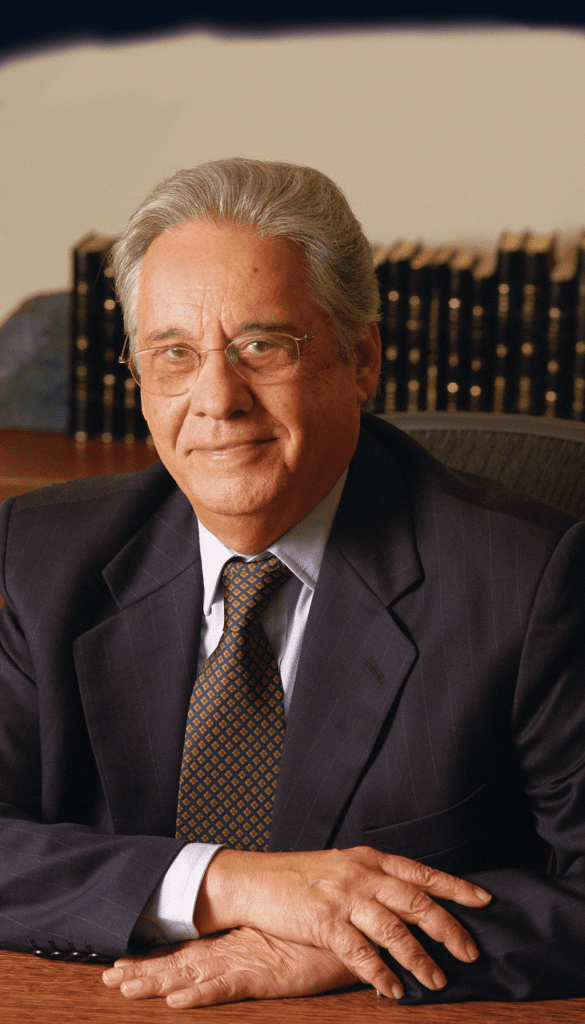
The Winners Economy & Law – Sixteen years of the Fernando Hen - rique Cardoso Foundation (FFHC) - the only entity of former Brazilian Presidents that has become a center of excellence for studies on major themes of national and internationally recognized interest - what is your greatest satisfaction in this period with this legacy and what is your biggest challenge?
Fernando Henrique Cardoso – The biggest challenge is to not “detune”, that is, to keep the Foundation not only taking care of the president’s personal files but also active in contemporary discussions in Brazil and in the world. Free of partisanship and fear.
TWE&L – Brazil and the world are experiencing a pandemic. Scary deaths. Social distancing has been practiced worldwide. What lessons will we learn from this experience, mainly in the health, research, science and technology sectors?
FHC – The future of the world will continue to be that of new technologies and science, we must not forget that after the pandemic. Furthermore, the pandemic is revealing the perverse side of inequality for people’s survival, for life itself. It will be necessary that this feeling of solidarity continues after the coronavirus harmful effects come to an end (as soon as possible!). Other health crises may occur and unemployment will be inevitable.
TWE&L – In your view, after the covid-19 pandemic, what will international relations between governments be like in different countries? And, at a national level: local governments and their own societies?
FHC – There will be what already is here: trends towards “neo-nationalism” in the form of “my country first”. It is true though, whoever is in office will have to worry about their own country, but the world´s production is and will continue to be integrated, as production is “mass production”. Therefore, slowly and mindfully international solidarity and market integration will persist.
TWE&L – In the past three decades, what has happened to politics in the world and the world of politics? Is communism a threat to democracy in Brazil and in the world?
FHC – Communism no longer has driving factors because there are no world powers preaching it. China has developed a variant of authoritarianism, but its econo- my requires its participation in the world. Ergo, fewer threats. There-fore, seeing communism every-where is not just reactionary: it is seeing ghosts and having the illusion that it is necessary to at-tack them. It is backward and not a rightwing conservative factor. Sheer deception.
TWE&L – There is talk of a global economic recession following covid-19. Do you believe that there can be, independently and despite a recession in the global economy, a Democracy recession in the world?
FHC – There is a democratic shrinking. But I do not believe that in the West, where democracy It is better for the President not to despise their strength; when they unite against him, there will be a sorrowful president...
TWE&L – O que aconteceu na Venezuela, pode acontecer no Brasil?
FHC – Poder, sempre pode. Mas é difícil. Apesar dos impulsos autoritários atribuídos ao Presidente e seu grupo, a mídia continua livre e os partidos, embora fragmentados e pouco condutores da opinião pública, juntos, produzem um Congresso forte. É melhor o Presidente não desprezar sua força; quando ele se une contra, pobre presidente…

TWE&L – Mercosur. What went wrong? Is it still viable?
FHC – Mercosur did not go wrong per se, it lost fuel. Rather than continuing to lower customs barriers, countries want to increase them. Even so, the trade flow has increased a lot among Mercosur countries.
TWE&L – Politics in Brazil - politicians in Brazil: Presidency of the Republic, Federal Supreme Court and National Congress - what is really happening?
FHC – In Brazil the branch of power that has the capacity, and even the need, to define di-rections is the Executive branch. When it wobbles or emits con-fused signals, as currently, the others “appear”: power has void aversion... And they begin to ex-ceed their limits. The Constitution defines that there must be inde-pendence and harmony among all branches of powers. But how to harmonize them when one of them does not act in accordance with the sentiment of the nation, of the people?
TWE&L – Do you feel a real threat to Democracy in Brazil?
FHC – I will repeat what I have been saying: Otávio Mangabeira, an influential politician from Bahia once said that democracy is a delicate plant, it needs to be watered every day. Even if there are no concrete facts threatening freedom or democracy, you must always be aware. A contemporary author wrote a book entitled: “How do democracies die?” And he says that currently there are no military coups anymore. Democracy´s risk is to die little by little, at the hands of leaders who were elected by the people ...
TWE&L – What message can you give to Brazilians about this pandemic, perspectives and trends for the resumption of life and economy in Brazil.
FHC – I follow what those who understand (i.e. doctors, especially epidemiologists) say: as there is no coronavirus vaccine or specific medication, only social distance remains: stay home. Those who can ... And without neglecting the economy, so people do not die of starvation, without jobs or income. And hopefully, this pandemic will be brief: the longer we stay home, the less the transmission; Be careful because this bug, the virus, is conniving.
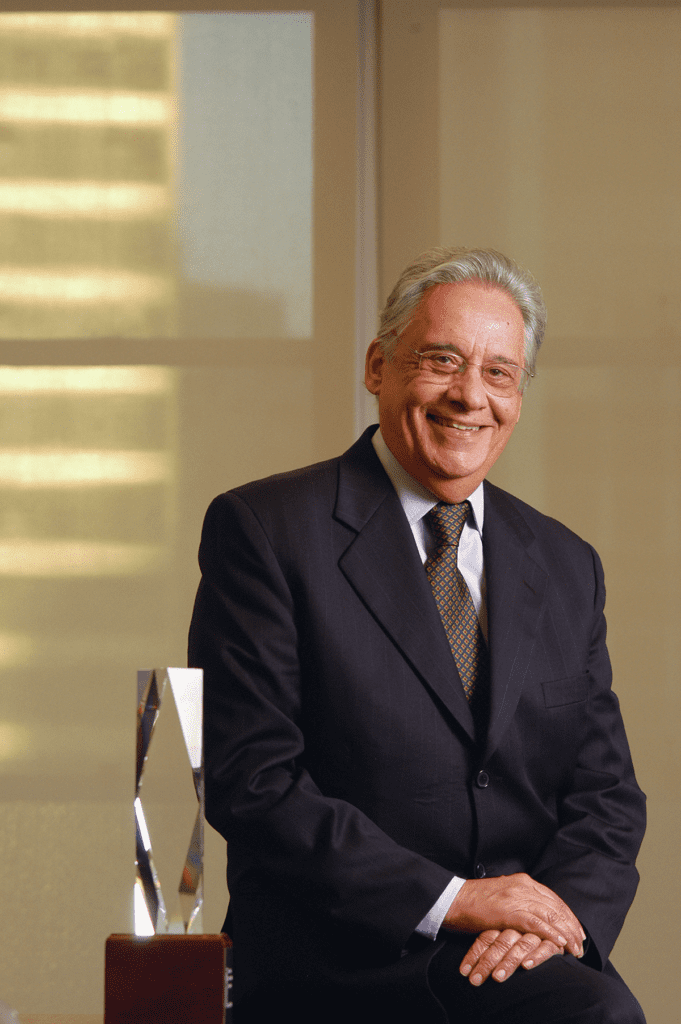
Confira essa entrevista na íntegra na banca digital.
Read wherever and whenever you want
Download our app and read wherever and whenever you want.


